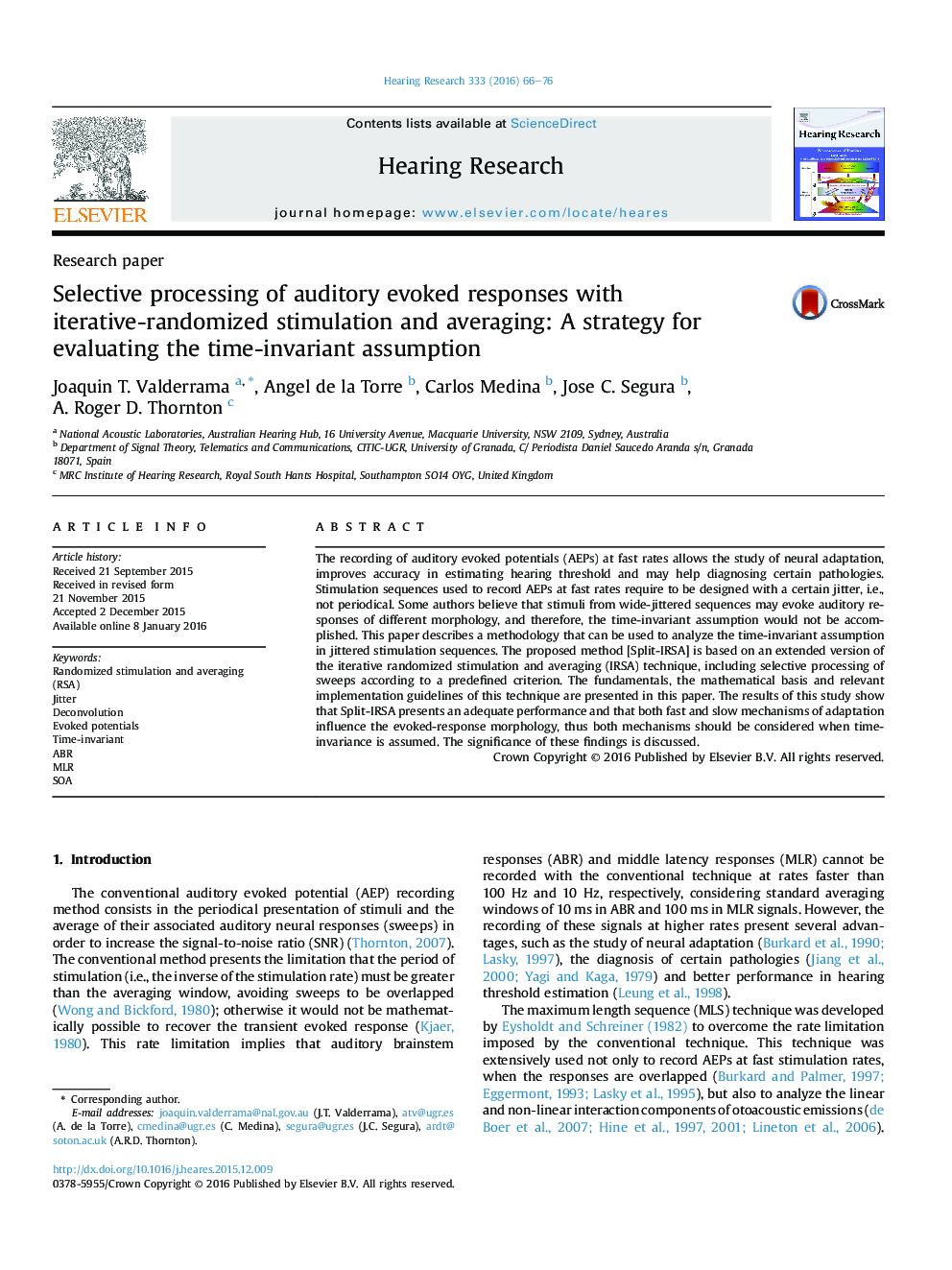| کد مقاله | کد نشریه | سال انتشار | مقاله انگلیسی | نسخه تمام متن |
|---|---|---|---|---|
| 6286992 | 1615567 | 2016 | 11 صفحه PDF | دانلود رایگان |
عنوان انگلیسی مقاله ISI
Selective processing of auditory evoked responses with iterative-randomized stimulation and averaging: A strategy for evaluating the time-invariant assumption
ترجمه فارسی عنوان
پردازش انتخابی پاسخ های ناشی از شنوایی با تحریک و به طور میانگین تصادفی تکراری - تصادفی: یک استراتژی برای ارزیابی فرض زمان -
دانلود مقاله + سفارش ترجمه
دانلود مقاله ISI انگلیسی
رایگان برای ایرانیان
کلمات کلیدی
موضوعات مرتبط
علوم زیستی و بیوفناوری
علم عصب شناسی
سیستم های حسی
چکیده انگلیسی
The recording of auditory evoked potentials (AEPs) at fast rates allows the study of neural adaptation, improves accuracy in estimating hearing threshold and may help diagnosing certain pathologies. Stimulation sequences used to record AEPs at fast rates require to be designed with a certain jitter, i.e., not periodical. Some authors believe that stimuli from wide-jittered sequences may evoke auditory responses of different morphology, and therefore, the time-invariant assumption would not be accomplished. This paper describes a methodology that can be used to analyze the time-invariant assumption in jittered stimulation sequences. The proposed method [Split-IRSA] is based on an extended version of the iterative randomized stimulation and averaging (IRSA) technique, including selective processing of sweeps according to a predefined criterion. The fundamentals, the mathematical basis and relevant implementation guidelines of this technique are presented in this paper. The results of this study show that Split-IRSA presents an adequate performance and that both fast and slow mechanisms of adaptation influence the evoked-response morphology, thus both mechanisms should be considered when time-invariance is assumed. The significance of these findings is discussed.
ناشر
Database: Elsevier - ScienceDirect (ساینس دایرکت)
Journal: Hearing Research - Volume 333, March 2016, Pages 66-76
Journal: Hearing Research - Volume 333, March 2016, Pages 66-76
نویسندگان
Joaquin T. Valderrama, Angel de la Torre, Carlos Medina, Jose C. Segura, A. Roger D. Thornton,
